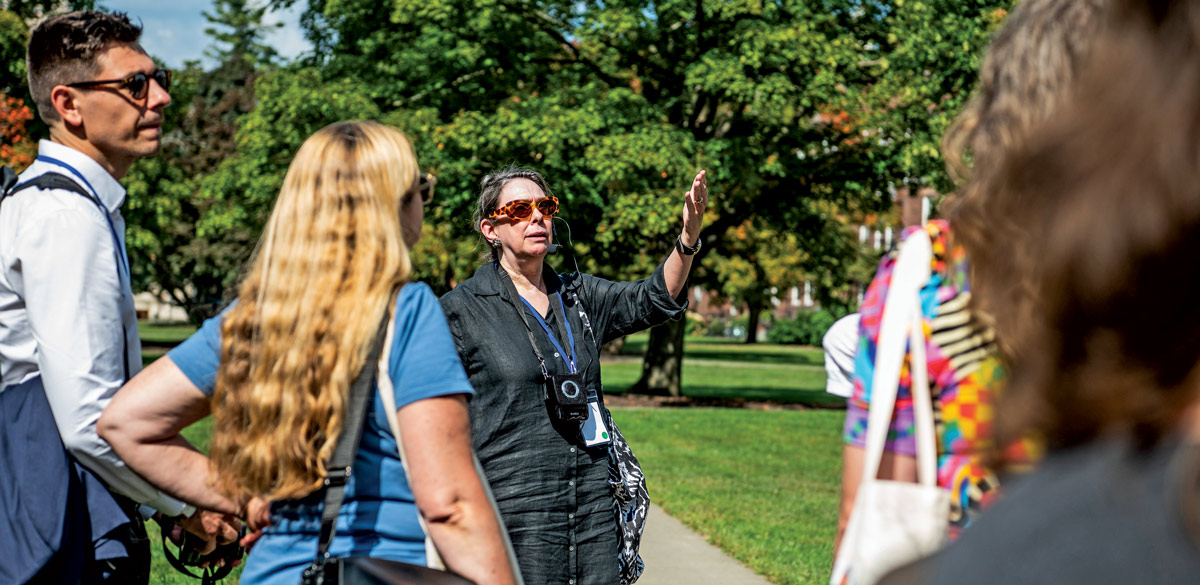
Kelly Marsh
Olmsted Conference Explores the Benefits of Beautiful Landscapes
The event was organized by the Olmsted Network, a nationwide group of historians, design professionals, park managers, and citizen activists dedicated to championing the environmental and design principles embodied by Olmsted’s work.
Vassar Professor of Art History Yvonne Elet, who teaches courses on landscape history, delivered a keynote address noting that, though the Olmsteds are best known for creating parks, they had played key roles in designing and creating Vassar’s landscape. Olmsted himself was consulted by College trustees shortly after the first students arrived on campus, although few if any of those discussions led to the ultimate design of the campus, Elet said. But decades later, Olmsted’s nephew, adopted son John Charles Olmsted, and members of his firm were involved in plans for various portions of the campus.
Elet also lauded Edith Roberts, who arrived on campus in 1919 as Professor of Botany, for championing the importance of making the College’s landscape a showcase for the more than 600 species of plants indigenous to Dutchess County. The hiring of noted landscape architect Beatrix Farrand to design the campus arboretum furthered Roberts’s ideas about turning the campus into a living laboratory.
In panel discussions, several experts spoke of the work Frederick Law Olmsted and other 19th-century landscape design pioneers had done at psychiatric hospitals built throughout the Northeast. Creating beautiful landscapes on the grounds of these institutions reflected the belief that a well-designed environment would help patients recover and thrive.
That observation was echoed in a panel moderated by President Elizabeth H. Bradley, featuring scientists and MDs. “We know nature is good for your health,” said Dr. Howard Frumkin, a physician and epidemiologist whose career has focused on the intersection of health and the environment. “It benefits our senses, increases bone density, and enhances other physical traits,” he said. “The creation of public parks,” Frumkin added, “also plays a key role in addressing mental health at a time when the country is experiencing a nationwide epidemic of loneliness.”
President Bradley said that the importance of nature “has been a part of the ethos of the College from its inception—on the grounds and in the curriculum.” She said the commitment to preserving and enhancing the campus environment is embodied by the College’s decision to join the Campus Nature Rx Network, a consortium of more than 70 colleges and universities “that support campus health through inclusive and equitable engagement with nature.” Vassar plans to celebrate the 100th anniversary of the creation of the campus arboretum next year.
As the two-day event came to a close, Olmsted Network President and CEO Ann “Dede” Petri concluded, “There is still much work to do to preserve open spaces that promote mental and physical health; in too many cities, our great public spaces are threatened by development and privatization.” She issued a call to action: to challenge these trends and to elevate the importance of parks and open space to our physical, mental, and ecological well-being.